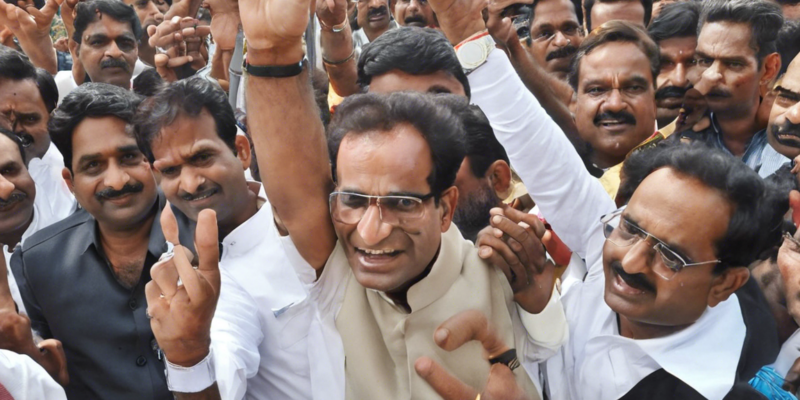Madhya Pradesh, located in central India, is a state known for its rich history, cultural heritage, and political significance. With its diverse population and geographic spread, the state plays a crucial role in Indian politics. Madhya Pradesh elections have always been closely watched as they often set the tone for national politics. In this comprehensive guide, we will delve into the electoral landscape of Madhya Pradesh, exploring its political history, key players, major political parties, election process, important issues, and the impact of elections on the state and the country.
Political Landscape of Madhya Pradesh
Madhya Pradesh has a bicameral legislature with Vidhan Sabha (Legislative Assembly) and Vidhan Parishad (Legislative Council). The state has 230 Vidhan Sabha seats and 40 Vidhan Parishad seats. Elections are held every five years to elect members to these bodies. The state also sends 29 Members of Parliament (MPs) to the Lok Sabha, the lower house of the Indian Parliament.
Historically, Madhya Pradesh has been a stronghold of the Bharatiya Janata Party (BJP) and the Indian National Congress. The state has seen power alternation between these two major parties. The political landscape is also dotted with regional parties like the Bahujan Samaj Party (BSP) and the Samajwadi Party (SP), which have had varying degrees of influence in different regions of the state.
Key Political Players
Shivraj Singh Chouhan (BJP)
Shivraj Singh Chouhan, a prominent leader of the BJP, has been a key political figure in Madhya Pradesh. He served as the Chief Minister of the state for three consecutive terms from 2005 to 2018. Chouhan is known for his pro-poor initiatives and agricultural policies.
Kamal Nath (Congress)
Kamal Nath, a veteran Congress leader, served as the Chief Minister of Madhya Pradesh from 2018 to 2020. He is known for his long political career and his influence in national politics.
Jyotiraditya Scindia (BJP)
Jyotiraditya Scindia, a former Congress leader and scion of the Scindia royal family, recently joined the BJP. His entry into the BJP has significantly altered the political dynamics in the state.
Major Political Parties in Madhya Pradesh
Bharatiya Janata Party (BJP)
The BJP has a strong presence in Madhya Pradesh, with a focus on Hindutva ideology, development, and good governance. The party has historically performed well in the state, especially in urban areas and among the upper caste and middle-class voters.
Indian National Congress
The Congress party has a significant support base in Madhya Pradesh, particularly in rural areas and among minority communities. The party has been vocal about issues concerning farmers, unemployment, and social welfare.
Bahujan Samaj Party (BSP)
The BSP, led by Mayawati, has a niche following among Dalits and marginalized communities in Madhya Pradesh. While the party has not been able to form a government on its own, it has played a crucial role in coalition politics in the state.
Samajwadi Party (SP)
The SP, with its roots in Uttar Pradesh, has a limited presence in Madhya Pradesh. The party mainly focuses on social justice and minority rights.
Election Process in Madhya Pradesh
Madhya Pradesh follows the same election process as the rest of India. The Election Commission of India is responsible for conducting free and fair elections in the state. The process includes:
-
Electoral Roll: The preparation of the electoral roll is a crucial step in the election process. It ensures that all eligible voters are registered to vote.
-
Nomination: Political parties and independent candidates file their nominations during the given nomination period. Scrutiny of nominations follows this step.
-
Campaigning: Political parties campaign extensively in Madhya Pradesh, holding rallies, roadshows, and public meetings to garner support.
-
Voting: The state conducts voting on the specified election date. Electronic Voting Machines (EVMs) are used for polling.
-
Counting: After voting concludes, the EVMs are counted to determine the election results.
Key Issues in Madhya Pradesh Elections
Agricultural Distress
Agriculture is the backbone of Madhya Pradesh’s economy, with a significant percentage of the population dependent on farming. Issues like crop prices, irrigation, and agricultural debt often dominate the election discourse.
Unemployment
Like many states in India, unemployment is a pressing issue in Madhya Pradesh. The youth population seeks opportunities for employment and skill development.
Infrastructure Development
Infrastructure development, including roads, electricity, and healthcare facilities, is crucial for the state’s progress. Voters often evaluate parties based on their promises regarding infrastructure projects.
Caste and Social Welfare
Caste dynamics play a significant role in Madhya Pradesh politics. Parties often address issues related to social welfare and upliftment of marginalized communities to attract voters.
Impact of Madhya Pradesh Elections
The outcomes of Madhya Pradesh elections have far-reaching implications for both the state and national politics. A win in Madhya Pradesh often boosts the morale of the winning party and sets the tone for upcoming elections in other states. The policies and governance model implemented by the winning party also influence the socio-economic landscape of the state.
Frequently Asked Questions (FAQs)
1. When are the next Madhya Pradesh elections scheduled to take place?
The next Madhya Pradesh Legislative Assembly elections are scheduled to take place in 2023.
2. How many seats are there in the Madhya Pradesh Vidhan Sabha?
The Madhya Pradesh Vidhan Sabha has 230 seats.
3. What role do regional parties play in Madhya Pradesh politics?
Regional parties like the BSP and SP have a niche following in Madhya Pradesh, especially among marginalized communities. They often influence coalition politics in the state.
4. Who is responsible for conducting elections in Madhya Pradesh?
The Election Commission of India is responsible for conducting free and fair elections in Madhya Pradesh.
5. What are the key issues that typically dominate the election discourse in Madhya Pradesh?
Agricultural distress, unemployment, infrastructure development, and social welfare are some of the key issues that dominate the election discourse in Madhya Pradesh.










